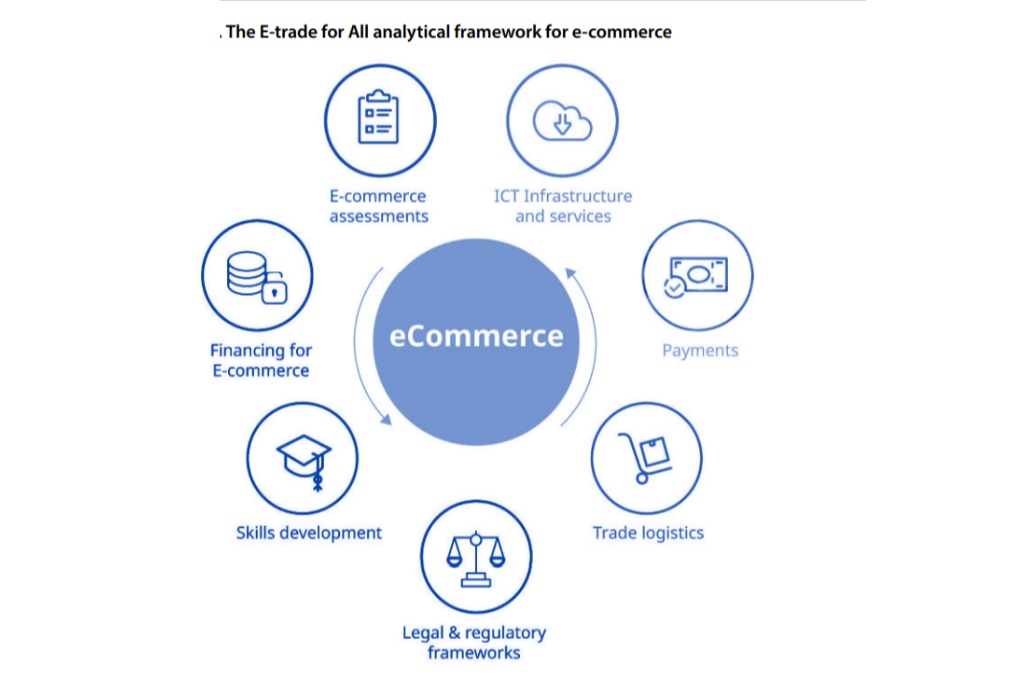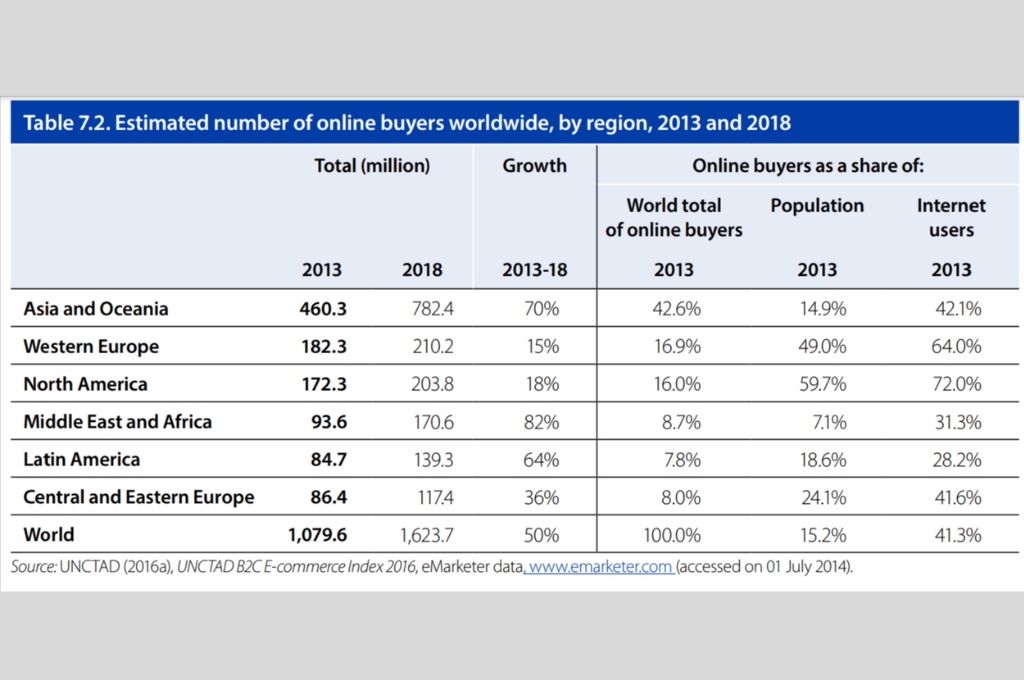In today’s rapidly evolving business landscape, sustainability has emerged as a cornerstone driving significant change across industries. Nowhere is this more evident than in the realm of eCommerce, where businesses are increasingly embracing sustainable practices to meet the growing demand for environmentally and socially responsible products and services. As professional and eCommerce business leaders, it is crucial to recognize the profound impact that sustainable practices can have on both business success and global sustainability efforts. From eco-friendly product sourcing to carbon-neutral shipping methods, sustainable eCommerce is reshaping the way we shop, consume, and interact with the world around us.
In this blog, we will explore the burgeoning trend of sustainable eCommerce businesses, examining the opportunities that arise as companies strive to integrate sustainability into their operations.
Understanding What Is Sustainable eCommerce
Sustainable eCommerce refers to the practice of conducting online business operations in a manner that minimizes environmental impact, promotes social responsibility, and prioritizes ethical considerations throughout the entire supply chain. It encompasses a range of strategies to reduce carbon emissions, conserve natural resources, and promote fair labor practices, among other goals. Sustainable eCommerce businesses prioritize sustainability in various aspects of their operations, including product sourcing, manufacturing processes, packaging, transportation, and waste management. This approach aims to create a more environmentally friendly and socially responsible business model that aligns with consumer values and contributes to long-term sustainability efforts. Sustainable eCommerce involves not only offering eco-friendly products but also adopting sustainable practices across all aspects of the business to minimize its overall environmental footprint and maximize positive social impact.

Impact of eCommerce on the Environment
To offer a perspective, it is estimated that by 2025, retail eCommerce sales will surpass $1.6 trillion, a figure more than double that of 2020. Moreover, over 40% of U.S. consumers receive at least one Amazon package weekly.
The increasing demand for sustainable practices is apparent, with 82% of shoppers advocating for brands to embrace eco-friendly and socially responsible approaches, a movement largely driven by Gen-Z consumers. However, eCommerce encounters a significant challenge with a 20% return rate on online purchases, resulting in approximately five billion pounds of returned goods ending up in U.S. landfills annually. This underscores the necessity of integrating sustainable strategies into eCommerce operations.
The Sustainable E-Commerce Market was valued at USD 11.29 billion in 2021 and is expected to grow from USD 13.06 billion in 2022 to USD 40.75 billion by 2030, representing a compound annual growth rate (CAGR) of 15.38% during the forecast period (2023-2030).

Sustainable E-Commerce Market Top Player’s Company Profiles
- helloFresh
- Patagonia
- veja
- Amazon
- Flipkart
- Lush
- 4Ocean
- Simple switch
- thrive Market
- Ten thousand Village
- ethica
- The responsible shop – verishop
Why Sustainable eCommerce Matters?
Incorporating sustainability into eCommerce practices is crucial for several reasons, each contributing to the overall well-being of our planet, economy, and society.
Environmental Protection: Sustainable eCommerce initiatives play a vital role in minimizing the environmental impact of online retail operations. By implementing eco-friendly packaging, optimizing supply chain logistics to reduce carbon emissions, and promoting the use of renewable energy in warehouses and fulfillment centers, eCommerce businesses can significantly decrease their carbon footprint. Additionally, sustainable practices such as reducing waste and promoting recycling contribute to the conservation of natural resources and the preservation of ecosystems, thus mitigating environmental degradation.
Economic Viability:
Embracing sustainability in eCommerce can also lead to economic benefits for businesses in the long run. While some sustainable practices may require initial investment, such as transitioning to renewable energy sources or implementing waste reduction measures, they often result in cost savings over time. For instance, optimizing packaging sizes and materials can reduce shipping costs, while energy-efficient operations can lower utility expenses. Moreover, as consumer demand for sustainable products and brands continues to rise, businesses that prioritize sustainability are likely to gain a competitive edge, attracting environmentally conscious customers and enhancing brand reputation.
Social Equity:
Sustainable eCommerce practices can contribute to fostering social equity by prioritizing fair labor practices, supporting local communities, and promoting diversity and inclusion throughout the supply chain. By partnering with ethical suppliers and manufacturers, eCommerce businesses can ensure that workers receive fair wages, safe working conditions, and opportunities for advancement. Additionally, investing in community initiatives and philanthropic efforts can have a positive impact on local economies and address social inequalities. Furthermore, by offering diverse and inclusive product offerings and fostering a supportive workplace culture, eCommerce businesses can contribute to building more equitable and inclusive societies.
Some of the Evolving eCommerce Development Companies Working Towards Sustainability
1. Fourmeta
Fourmeta is a full-service Shopify development company that aims to bridge the gap between cutting-edge technology and human ingenuity. They follow the abbreviation META—the Most Effective Tactics Available—where human expertise fuels technological advancements. Fourment uses tried and tested data-driven methodologies coupled with the latest tech to craft unique, bespoke solutions to your digital challenges. Their team is united by a passion for technology and business growth, and their main values include Integrity, Innovation, Excellence, and Partnership.
They take robust consumer insights, a deep understanding of the digital landscape, and a strong knowledge of the big picture into account. By examining the market and analyzing their competitors, they strive to create a complete picture of all the opportunities available for you to become truly extraordinary.
2. Omnicommerce
Omnicommerce is committed to driving enhanced efficiency through insights and improved focus. They firmly believe in unlocking three key skill sets: technical expertise, analytical techniques, and financial acumen. As one of the leading eCommerce development companies in UK, Omnicommerce boasts over a decade of expertise in encapsulating best practice analytical thinking into easy-to-use and fast-to-deploy insight reports for businesses of all sizes. Their dedication and cornerstone drive long-term shareholder value, and we deliver the analysis of these through cognitive science-based visuals.
Their foundation is built on four principles: CUSTOMER ACCOUNTING, COGNITIVE ANALYTICS, COHORT ANALYSIS, and EXECUTION CYCLE, which help in:
- Optimizing marketing spend and allocation
- Maximizing marketing spend efficiency
- Minimizing web trading inefficiency
- Utilizing automated reporting capabilities
- Budget modeling and objective setting
3. Ziffity
Ziffity, positioned among the top-tier IT services companies in USA, focuses primarily on empowering B2B, B2C, and D2C enterprise brands. With a team of over 120 certified professionals, Ziffity assists enterprise businesses in overcoming challenges and achieving their ambitious goals.
Specializing in eCommerce platforms and content management systems such as Adobe Commerce, BigCommerce, Shopify, Salesforce Commerce Cloud, WordPress, and Adobe Experience Manager, Ziffity offers a comprehensive range of services. These include design, eCommerce development, mobile app development, product engineering, Microservices, middleware development, Artificial Intelligence, quality assurance, cloud solutions, content marketing, business intelligence, and marketing automation.
Ziffity prides itself on being a customer-centric agency with an unwavering commitment to exceeding expectations and setting new standards. Their expertise spans Magento eCommerce development, BigCommerce services, Shopify Plus service, Salesforce Cloud Commerce, and Shopware eCommerce development. By partnering with Ziffity, businesses can expect end-to-end solutions tailored to their specific needs.
4. Media Lounge
Consider Media Lounge if your business aims to elevate its online presence. As one of the premier eCommerce development companies, Media Lounge is dedicated to helping brands establish, expand, and compete in the digital landscape. Whether you seek a transformation, a refresh, or an extension, we provide scalable, future-proof solutions that drive success for digital businesses.
At Media Lounge, we specialize in identifying the optimal platform for your business needs. We prioritize enhancing the customer experience, empowering you to make informed decisions grounded in science, data, and real-world insights rather than assumptions or biases. Our approach ensures that your online store is optimized for performance, from conversion rate optimization to seamless integrations. Through close collaboration, innovation, and continuous improvement with cutting-edge technology, we craft eCommerce platforms that enhance conversion rates, boost online revenue, and propel your business to new heights.
5. RankFirm
Rankfirm serves as a top-tier listing platform dedicated to connecting businesses with the finest Magento Development Companies to propel their eCommerce ventures to new heights. Magento stands out as an open-source e-commerce platform renowned for its flexibility, scalability, and robust features, making it a preferred choice for online stores seeking growth and innovation. In the journey to build a thriving Magento store, partnering with a dependable and seasoned development company is paramount to realizing business objectives. Given that Magento development is an ongoing endeavor, it’s imperative to collaborate with a firm that offers reliable support and maintenance services.
Through Rankfirm, businesses gain access to a curated selection of eCommerce companies perfectly suited to address their technical requirements and facilitate seamless updates. The platform facilitates the identification of companies that boast transparent and competitive pricing models, ensuring that businesses can make informed decisions aligned with their budgets and objectives. Moreover, Rankfirm simplifies the process of evaluating and comparing the skills, expertise, and experience of various eCommerce development firms, enabling businesses to make confident choices. Lastly, the platform’s comprehensive FAQ section enhances clarity regarding services, pricing, and offerings, empowering businesses to make well-informed decisions that drive success.
Make Your E-commerce Business More Sustainable
To make your e-commerce business more sustainable, consider implementing the following strategies:
Sustainable Sourcing:
Opt for suppliers and manufacturers that prioritize sustainability in their practices. Choose materials that are eco-friendly, renewable, and ethically sourced. This not only reduces your environmental footprint but also aligns with the values of environmentally conscious consumers.
Reduce Packaging Waste:
Minimize the use of excessive packaging and explore eco-friendly alternatives such as recycled materials, biodegradable packaging, and minimalistic designs. Implementing efficient packaging practices not only reduces waste but also lowers shipping costs and enhances brand reputation.
Energy Efficiency:
Embrace energy-efficient practices within your operations, such as utilizing renewable energy sources, optimizing warehouse lighting and temperature controls, and investing in energy-efficient appliances and equipment. By reducing energy consumption, you can lower operational costs and minimize your carbon footprint.
Sustainable Shipping Practices:
Optimize your shipping and logistics processes to minimize transportation emissions and packaging waste. Consider partnering with eco-friendly carriers, implementing route optimization strategies, and offering consolidated shipping options to reduce the environmental impact of product delivery.
Waste Reduction and Recycling:
Implement waste reduction initiatives within your operations by encouraging recycling, composting, and proper disposal of waste materials. Consider implementing a take-back program for product returns to minimize waste and facilitate recycling or repurposing of returned items.
Carbon Offsetting:
Consider investing in carbon offset programs to mitigate the environmental impact of your business operations. Support projects such as reforestation, renewable energy development, and methane capture initiatives to offset the carbon emissions generated by your e-commerce business.
Educate and Engage Customers:
Raise awareness among your customers about the importance of sustainability and encourage them to make environmentally conscious purchasing decisions. Provide information about your sustainability initiatives, certifications, and eco-friendly product options to empower customers to support sustainable practices.
By incorporating these strategies into your e-commerce business model, you can contribute to a more sustainable future while also attracting environmentally conscious consumers and enhancing your brand reputation.







